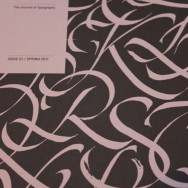Here is the rest of January’s books:
1/16 -17: Freckles (by Gene Stratton-Porter) This and A Girl of the Limberlost
remind me of my childhood and Indiana. I grew up playing outside in our vegetable garden and in Holcombe Gardens on Butler University’s campus, and although my childhood was in a very different era than the setting of these books, I never fail to appreciate the attention paid to the natural characteristics of the land and animal life in that part of the country. These books are a celebration of progress and self-improvement through dedication to the land/nature which is a concept I respect and strive to achieve, but progress and preservation of nature are and historically have been considered incongruous concepts. I recommend it for young adults and adult readers who are interested in early twentieth century regional fiction, or any mid-level or better reader interested in nature.
1/18: After Milk and Song (by Erin Mullikin) This is another South Carolina Poetry Initiative chapbook winner, but it happens to be authored by one of my classmates at Clemson. It appears to be currently unavailable, but if you get the chance to read a copy of it, Mullikin’s poems delve deeply into the loss of a parent and reflection on how pieces of them and the lessons they taught you live on. They are beautifully done, and I highly recommend watching out for more works to come by her.








